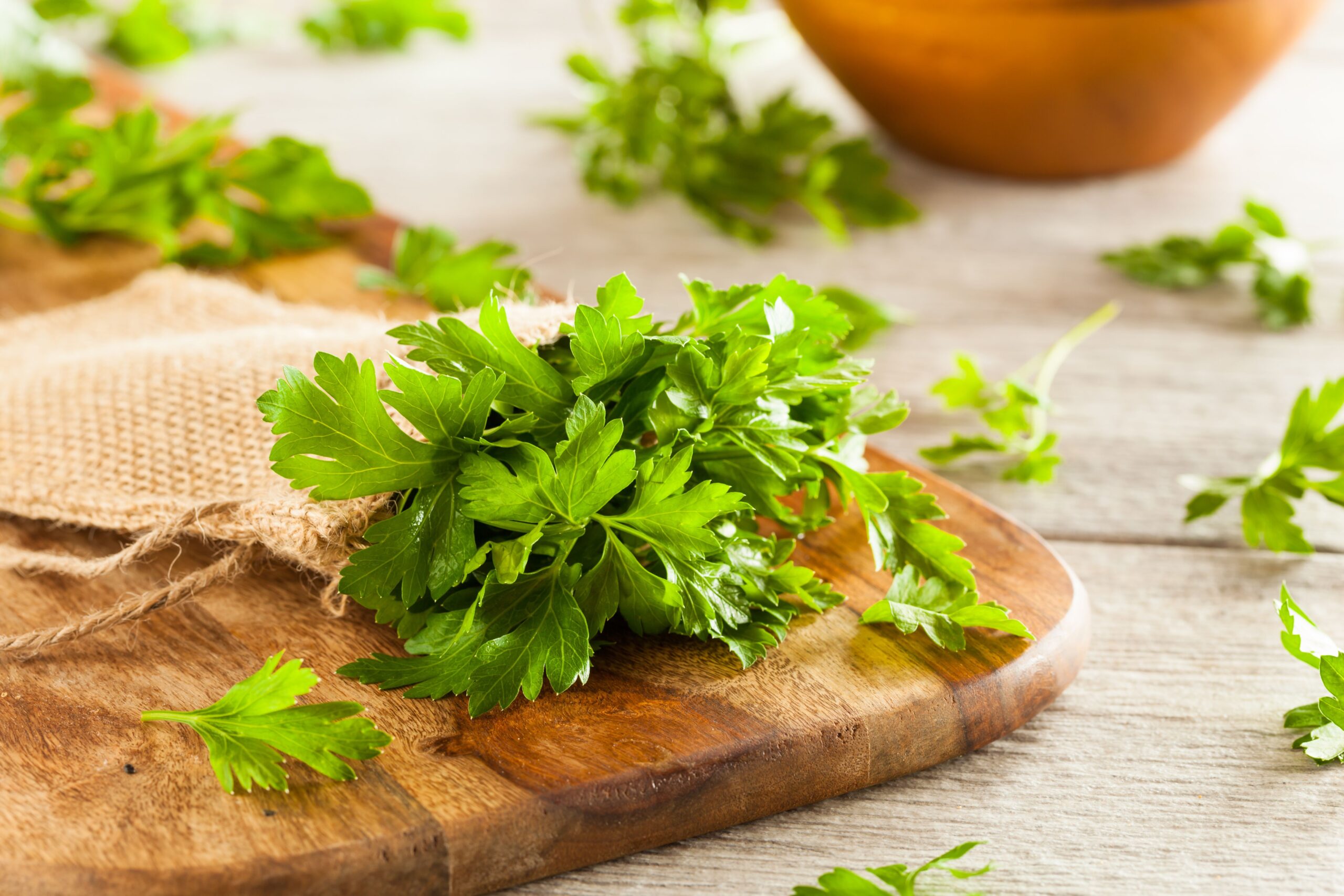Parsley is a highly prized plant in the kitchen and for years it has been used as a home remedy to relieve fluid retention, for its diuretic properties, to prevent cell oxidation and is also a source of vitamin C.
Of the foods rich in vitamin C, parsley is one of the ones that contains the most this vitamin, even four times more than citrus foods such as oranges. And it is thanks to this concentration of vitamin C that antioxidant and diuretic properties are attributed to it.
This powerful plant has diuretic, antioxidant, anti-inflammatory, antibacterial, antidiabetic, immunomodulatory, cytotoxic, and nephroprotective properties.
This is because it has active components such as myristicin and epigenin (flavonoids), apiol, Alpha-Pinene and Beta-pinene, says Tua Saude.
Nutritional value of parsley
When reviewing the nutritional value of 100 grams of parsley, we find that they contain 36 calories, 2% of the total daily needs, 6.3 grams of carbohydrates, 3.3 grams of fiber, 2.97 grams of protein, 56 milligrams of sodium, 87.71 grams of water, 0 milligrams of cholesterol and 0.79 grams of fat.
In addition, it is a source of vitamins such as: vitamin A (8424 mg), Vitamin B-9 (152 mg) or Vitamin C (133.0 mg), indicates Todo Alimentos.
Helps prevent chronic diseases

Ascorbic acid, known as vitamin C, acts as an antioxidant, with the ability to protect cells against damage caused by free radicals.
For this reason, parsley acts as an antioxidant, helping to alleviate the damage caused by free radicals that cause inflammation and oxidation of cells, two factors that cause chronic diseases.
It also contains carotenoids and flavonoids, the latter related to a lower risk of colon cancer and obesity. While carotenoids, such as lutein, inhibit the growth of breast cancer cells.
Way to include parsley in food
Parsley has a high concentration of vitamin C, so adding it to food can be easy, for example 3 tablespoons of chopped parsley contains approximately 50 mg of vitamin C.
With this measure recommended by Vitonica we can incorporate the consumption of parsley into our diet and in preparations such as tortillas, stews, smoothies, salads, sauces, among others.
We can also prepare an infusion with sprigs of parsley in a liter of water, of this preparation it is recommended to drink two cups a day to activate us as we would with coffee.
Contraindications to the consumption of parsley, according to research, are that it can cause damage to the central nervous system, predisposition to abortion and skin lesions, which is why its moderate consumption is recommended.
Keep reading:
. Infusions to improve metabolism and detoxify the liver
. Utility of green juice ingredients and contraindications Do you know what they are for?
. Colon cleansing naturally: water, homemade juices and food
